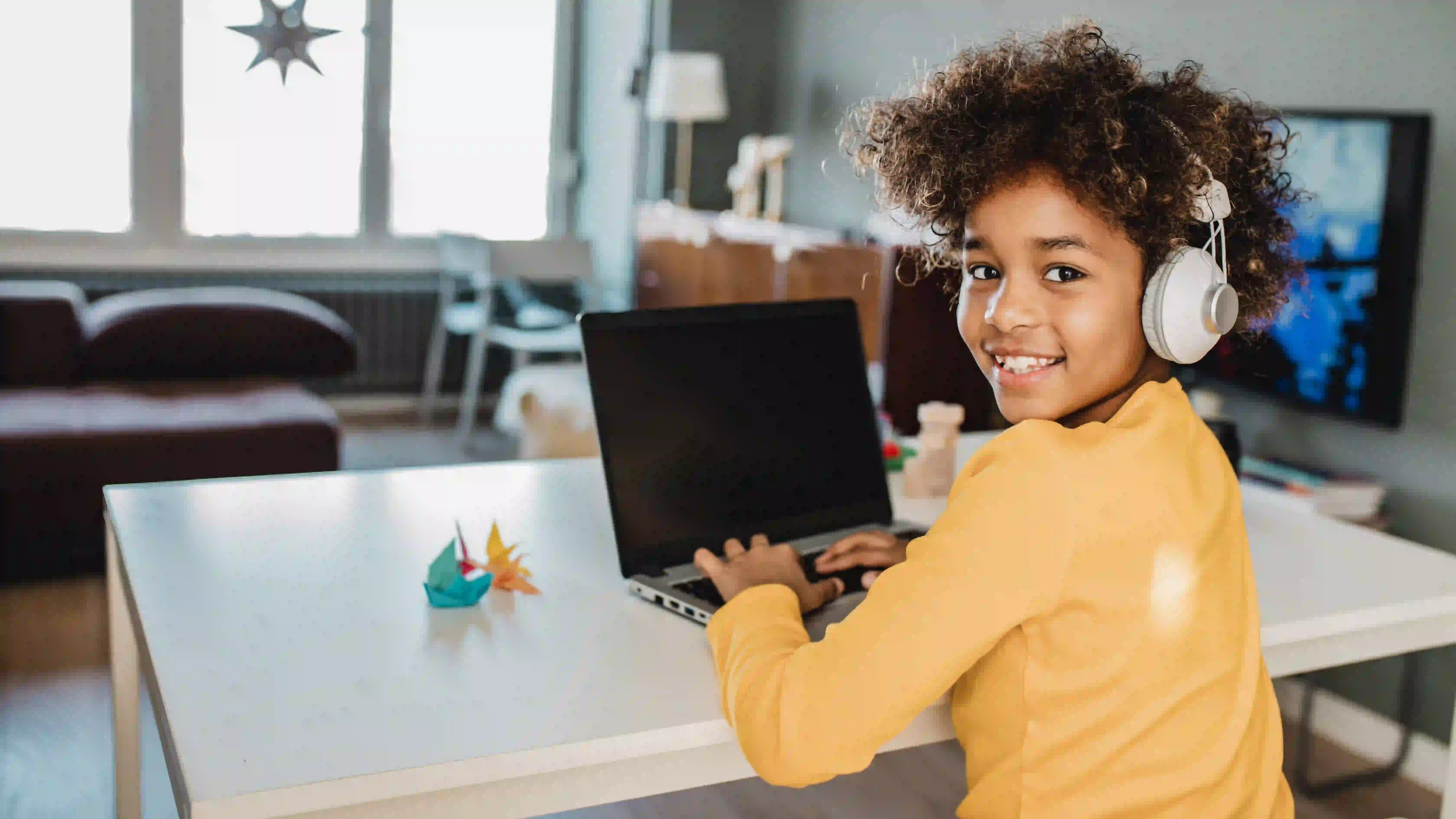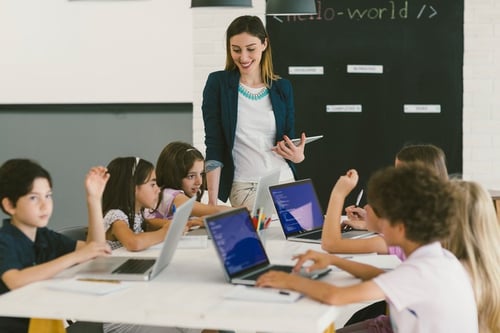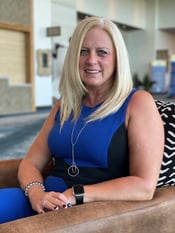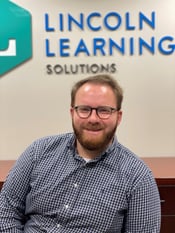
Schools across the country recently tackled another challenging back-to-school season as they continued to grapple with COVID-19-related challenges. While districts once again found themselves in unusual quandaries, two longtime educators are sharing smart solutions to help teachers ensure student growth.
Dr. Rachel Book and Charles Thayer have spent the bulk of the last two years equipping schools with dynamic technology to keep students learning. As a result, they have observed and facilitated the dramatic shift in education due to the pandemic.
Inequitable Evolution
In their roles at Lincoln Learning Solutions, Book, Thayer, and their teams were unprecedently busy last summer as schools scrambled to prepare for online and blended learning.
As Book and Thayer developed solutions and supported educators, they witnessed the education transformation firsthand.
“Looking back, the evolution was not always created equal,” Thayer said. “From school to school, grade to grade, and teacher to teacher, attitudes and organizational approaches varied and, in most cases, the teachers’ responses were ultimately where the rubber met the road.”
He adds, though, that access to physical technology and Internet bandwidth, paired with delivery platforms that make virtual learning function more smoothly, were integral to determining the rate at which schools successfully adapted.
Schools with access to the proper tools tended to fair better and progress more quickly than those that struggled to equip their students with devices and connectivity. Thayer noted that schools that were more organizationally savvy, with backup plans in place, were able to pivot more efficiently and lose less ground.
As the evolution unfolded, Thayer said he and his colleagues consistently communicated internally, making sure teams were making proper adaptations to effectively assist schools.
The Lincoln Learning staff also learned a lot from this extraordinary event. Team members' unique vantage points revealed how schools with differing levels of preparedness either thrived or strived. Teams were motivated to reach out to schools with interventions and strategies to help students whose education was impacted in the midst of the pandemic.

Seeing the Silver Lining
Based on experience, best practices, and research, Book said schools now need to focus on reconnecting with families, giving students an academic boost, setting expectations, reimagining reassessments and routines, and empowering teachers.
Thayer emphasized that schools need to be armed with the knowledge they gained throughout the pandemic. “It’s easy to put things back on the shelf, so to speak, but let’s look at everything we learned that worked well and put it to good use,” he said.
Reconnect with Families
Reestablishing partnerships between and among schools, families, and communities is paramount to supporting students’ development, progress, and achievement. After two years of on-again, off-again lockdowns, it is especially important to foster and maintain these relationships.
“Have a parade,” Book said. “It’s a fun, effective way to engender excitement and allow everyone to reconnect. There are myriad ways based on grade levels to rejuvenate and reengage kids, but getting our communities—and especially parents—back in the game is as crucial."
“We are all aware of how parents elevate their kiddos’ learning experiences through the pandemic,” Book said. “And, research shows the more they’re involved, the better their kids achieve academically, so we need to re-inspire this collaborative effort.”
Set Expectations
Because students perform better when expectations are explicit, Book said educators need to first identify then foster students through personalized and differentiated instruction.
Book emphasized, “Let students know you believe in them when you’re setting these expectations, and don’t make excuses based on what they may have missed because of the extraordinary circumstances they have endured.”
The same holds true for reestablishing routines that give kids a roadmap for getting through the school day. Routines give students structure and keep them accountable. As educators necessarily re-evaluate routines, they may be wondering why they employed some of them in the first place.
“The point is,” Book said, “don’t go back. Talk with your students. Evaluate what didn’t work, rethink what worked, and make it work.”
Reimagine Assessment
State assessments and even standardized testing that measure academic achievement and have been mandatory for acceptance by most universities were reconsidered, Thayer commented.
Studies have concluded for decades that students with good grades and modest testing perform better in college than students with high test scores and lower grades. Yet, it took a pandemic for most colleges to waive the traditional requirement. Thayer said K-12 teachers reassessed course assessments, too.
“Assessment delivery was a little easier for educators who had some online teaching training or experience,” Thayer said. “Those who built in redundancy to their delivery methods were able to function whether they were online or in-person.”
He noted more educators were utilizing approaches that enable students to demonstrate critical thinking skills to solve problems. “That’s an approach we should continue to foster,” he said.
Empower Teachers
Many educators devoted their summers to professional development that incorporated online learning. As a result, they are feeling empowered.
“Challenging ourselves to come out of our comfort zones to tackle new technologies is good for the soul,” Thayer said. Exposing teachers to new strategies and tools that can be used both in the classroom and online is a win-win strategy.

What We Can Do
Adaptations will continue to be the norm. Zoom, Google Classroom, and Teams, for example, are now just a few new household terms. Moving to remote learning should feel like a mere snag, not a stumbling block. Utilizing tools that build on technology and keep kids interested should remain a part of all classrooms.
Students learn in different ways. As such, hybrid approaches are bi-directional; students can take online field trips, for example, in brick-and-mortar classrooms and in-person field trips in online classrooms.
As the school year continues to unfold, rather than fixating on learning loss, build a bridge that will put students closer to where they would have been had the pandemic not occurred.
Focusing on what’s lost isn’t going to bring anything back. A positive, productive, creative approach that incorporates foundational concepts with new skills will assist both faculty and students in building that strong bridge toward success. Teaching is an art, and artistic license may be necessary for learning to be successful.

Dr. Rachel Book serves as chief sales and marketing officer for Lincoln Learning Solutions. In addition to leading her team through an unprecedented demand for online learning throughout the pandemic, she devotes her personal time to leading and participating in efforts to improve opportunities for children. She leverages her doctoral program at the University of Southern California to help educators discover ways to enhance students’ cognitive, psychomotor, and social-emotional development. Dr. Book also has a BS in Early Childhood Education and an M.Ed in School Counseling.
 Charles Thayer is vice president of academic affairs at LLS. Formatively trained as a social studies teacher at the secondary level, he has been working in education—with a specific focus in online education—for more than a decade. Having held many positions in the field, including teacher, curriculum developer, and administrator, his experience in both the academic and technical realms has expanded his field of vision and understanding of the nuanced nature of online learning. He strives to connect relevant tools and assets in an efficient manner that enables teachers to meet students where they are.
Charles Thayer is vice president of academic affairs at LLS. Formatively trained as a social studies teacher at the secondary level, he has been working in education—with a specific focus in online education—for more than a decade. Having held many positions in the field, including teacher, curriculum developer, and administrator, his experience in both the academic and technical realms has expanded his field of vision and understanding of the nuanced nature of online learning. He strives to connect relevant tools and assets in an efficient manner that enables teachers to meet students where they are.
Lincoln Learning Solutions is a 501c3 nonprofit organization dedicated to collaborating with educators and maximizing their talents to facilitate student success. Based in Rochester, PA, it is the developer of Lincoln Empowered, a digitally based curriculum that delivers engaging, standards-based, instruction in online and blended learning environments. Lincoln Empowered offers a dynamic array of courses in language arts, mathematics, science, social studies, physical education, and the creative and performing arts. Lincoln Learning Solutions currently serves nearly 600 schools in 14 states, and upward of 265,000 students.
Related Posts
Reinforcing Online Safety and Etiquette in Digital Education
As the educational world adapts to new digital paradigms, parents, educators, and students face...
Lincoln Learning Donates Laptops, Curriculum to At-Risk Students
Lincoln Learning executives and staff recently visited MHY Family Services Longmore Academy to make...
Reduce Screen Time This Spring
With the flowers blooming and the sun emerging from the grey skies of winter, you’re probably...